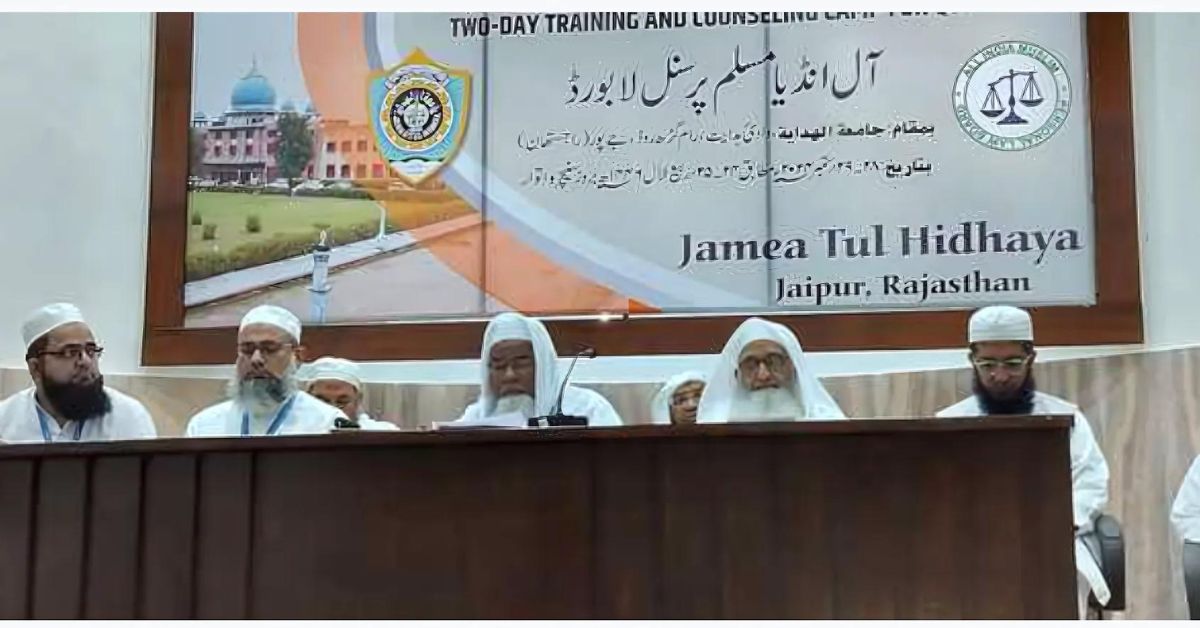Maulana Mohammed Fazlur Rahim Mujaddidi, General Secretary of the All India Muslim Personal Law Board (AIMPLB), Leads Call for Equality

Jaipur, India – In a Two-Day Training and Counseling Camp for Qudhaat held at Jamea Tul Hidaya in Jaipur, Rajasthan, the All India Muslim Personal Law Board (AIMPLB) urged for the implementation of justice for all Muslims in India.
Addressing the gathering, Maulana Fazlur Rahim Mujaddidi, the General Secretary of the AIMPLB, emphasized the importance of ensuring that justice reaches every Muslim in the country. He asserted that if this is achieved, the Muslim community can excel in all fields.
During the meeting, the Board’s General Secretary and other members verbally explained that a false narrative has been spreading for some time, claiming that if the Waqf Board claims ownership of land or property, the government is forced to hand it over to them. In reality, they explained, thousands of acres of Waqf land are illegally occupied, and efforts are being made to reclaim them. However, if this Bill is passed, these occupied lands will be permanently taken out of Waqf’s control.

Quoting the words of the former AIMPLB president, Qazi Majahidul Islam Qasmi, Mujaddidi expressed hope that one day, Muslims will be entrusted with the responsibility of administering justice in India. He reminded the audience that Muslims were sent to Earth to establish justice and urged them to reflect on their progress in this regard.
The meeting, which took place on September 28th and 29th, brought together Muslim scholars, legal experts, and representatives from various Islamic organizations. It served as a platform to discuss issues related to Muslim personal law and chart a path forward for the community.
The AIMPLB’s call for justice for Muslims comes at a time when the community faces various challenges and discrimination. The meeting’s outcome is expected to have significant implications for the future of Muslim personal law in India.
